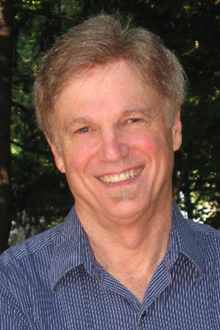Gittler Prize winner to speak on race and inequality
Stanford Sociology Professor Doug McAdam works on 'contentious politics'

Stanford Professor of Sociology Doug McAdam
Doug McAdam, a scholar who has made the study of social movements and other forms of “contentious politics” the focus of his research, will receive the fourth annual Joseph B. and Toby Gittler Prize for lasting and outstanding contributions to racial, ethnic and religious relations at 3 p.m. Thursday in Rapaporte Treasure Hall.
After receiving the prize medal from Provost Steve A.N. Goldstein '78, McAdam will speak on "The Continuing Significance of Race in America's Politics of Inequality."
A professor of sociology and director of urban studies at Stanford University, McAdam is the author of two books on the civil rights movement including “Freedom Summer,” which was a follow up study of the lives of those who applied to take part in the 1964 Mississippi Summer project 20 years later.
More recently, he has sought to assess the ongoing civic effect of participation in Teach for America, the relationship between neighborhood religious and civic life in Chicago, and to explain county level variation in the burning of churches in the United States between 1996 and 2001. His findings often have been unexpected.
Freedom Summer was a campaign in Mississippi organized by the Student Non-Violent Coordinating Committee, a group of young black activists, to register black voters and support the civil rights movement. Some 1,000 volunteers, many of them white, northern college students participated, braving hostile police, Ku Klux Klansmen, bullets and bombs. Four died and hundreds were wounded.
McAdam’s research showed that the experience affected the volunteers profoundly, to the extent that decades later many of them remained deeply involved in justice and freedom movements that continued to change the social and political landscapes of America. Volunteers who were accepted for Freedom Summer work but did not go through the experience, he found, were generally conventional liberals in later life.
Those findings led Teach for America founder Wendy Kopp to invite McAdam to do similar research on TFA “graduates,” in the expectation that his findings would be similar for those who took part in TFA. They were not.
In a recent telephone interview, McAdam said that “we found that TFA’s ‘graduates’ are no more likely to be engaged in public service than the two other groups studied” – volunteers who were accepted but did not enter the program and people who did enter the program but dropped out. “In fact, members of the first of those groups are consistently more civically engaged in the present than TFA graduates.”
Perhaps even more surprising is McAdam’s analysis, in collaboration with Rob Sampson, a professor of sociology at Harvard University, of civic and religious life in the neighborhoods of Chicago. Contrary to general expectations, the researchers found that religiosity and civic activism are inversely related.
Categories: Humanities and Social Sciences





